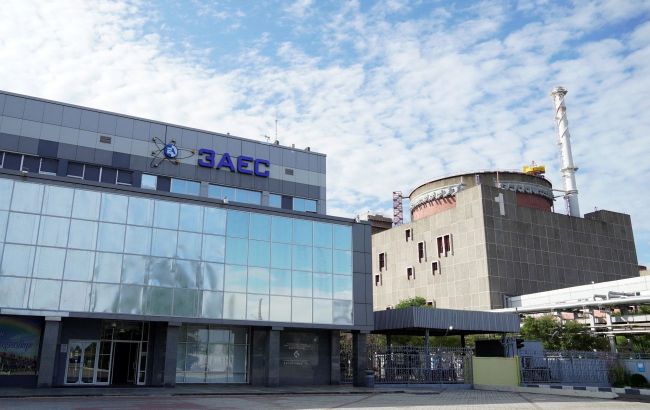ZNPP faces radiation disaster risk due to occupants' actions
 Photo: Occupants' actions at ZNPP increase the possibility of a radiation accident (Getty Images)
Photo: Occupants' actions at ZNPP increase the possibility of a radiation accident (Getty Images)
The failure of Russian occupiers to comply with the licensing requirements of the State Nuclear Regulatory Inspectorate for the operation of power units of the temporarily occupied Zaporizhzhia Nuclear Power Plant increases the possibility of a radiation accident, reports the press service of Energoatom (national nuclear energy generating company).
"Energoatom," a state enterprise operating all four nuclear power plants in Ukraine, stated that Russian occupiers at the Zaporizhzhia Nuclear Power Plant (ZNPP) have transitioned the fourth power unit from a "cold shutdown" to a "hot shutdown." Meanwhile, according to the International Atomic Energy Agency (IAEA), the sixth power unit is being transitioned from a "hot" state to a "cold" one.
"The presence of Russian military personnel, weapons, and heavy equipment at the Zaporizhzhia Nuclear Power Plant, as well as non-compliance with the licensing requirements of the State Nuclear Regulatory Inspectorate, leads to the inevitable degradation of the station's safety-relevant equipment and systems. This can result in increased equipment failures and provoke a radiation accident," emphasized Petro Kotin, the president of "Energoatom."
He said that the execution of the licensing requirements for operating nuclear power units guarantees the safe operation of nuclear power plants, ensuring the safety of personnel, the public, and the environment.
Kotin added, "Licensing requirements are based not only on the provisions of rules and standards effective in Ukraine but also account for many years of domestic and international experience in operating nuclear power plants."
It is noted that, according to the licensing requirements of the State Nuclear Regulatory Inspectorate for the operation of ZNPP power units, which were amended in June this year, all power units of the station must be exclusively in a "cold shutdown" state. Transitioning the power units to a more dangerous "hot shutdown" form is prohibited.
"Such operating requirements for ZNPP power units were put forth due to the lack of timely and quality technical maintenance and the necessary routine repairs of the equipment throughout the entire period of the station's occupation. But the fake administration neglects not only the legal requirements of the legitimate operator and regulator but also common sense," emphasized Kotin.
Energoatom pointed out that such actions by the occupiers have already led to several emergencies. In particular, due to the heating up of the fourth power unit, there was a water leak from the first to the second loop, violating one of the barriers to spreading radioactive contamination.
A similar situation occurred during the invaders' attempt to "heat" the sixth power unit. Moreover, its transition to a "hot" state led to a significant increase in the amount of liquid radioactive waste on the site, posing potential harm to personnel, the public, and the environment.
Situation at ZNPP
Russian occupiers seized the Zaporizhzhia Nuclear Power Plant at the beginning of the large-scale invasion. The invaders violate the plant's operating regime and use storage facilities to store equipment and deploy live forces. The station has been disconnected from Ukraine's power grid several times throughout the occupation.
Another accident occurred at ZNPP recently. There was a risk of one of the power units shutting down. Additionally, Ukrainian officials have repeatedly reported risks of a terrorist attack at the station.
Earlier, the Minister of Energy, Herman Halushchenko, stated that Russia might create conditions that would lead to a nuclear incident after the Zaporizhzhia Nuclear Power Plant's de-occupation by Ukrainian defenders.
Furthermore, the General Conference of the International Atomic Energy Agency (IAEA) approved a resolution on the immediate return of the Zaporizhzhia Nuclear Power Plant to full Ukrainian control.

